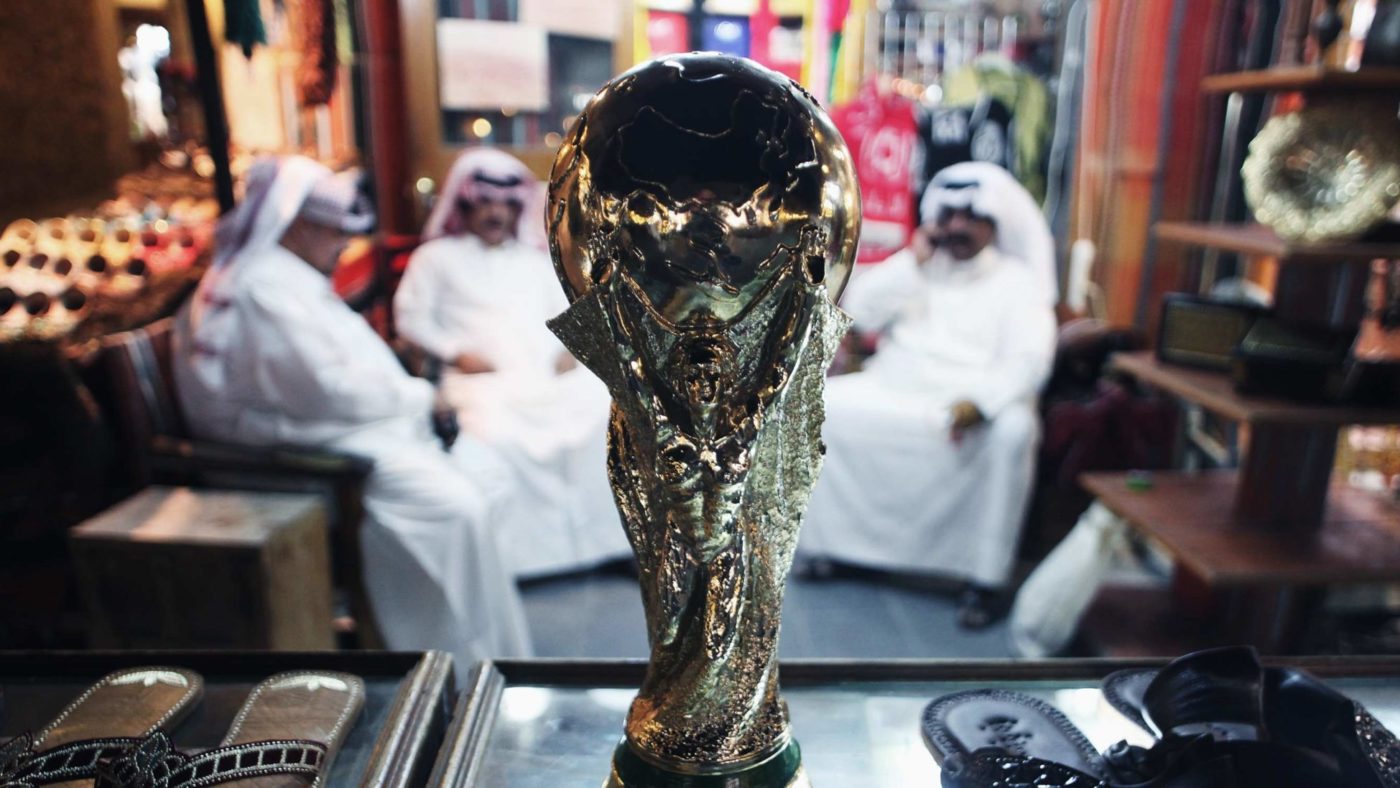The World Cup is now a warm and distant memory, but the new league season is upon us. Sadly there is an outstanding problem in the world of football that no amount on pitch pyrotechnics can dispel.
In 1948, in the aftermath of the most devastating war in human history, the Olympic Games, that symbol of sporting endeavour and peace between nations, came to London. It did so after a hiatus of 12 years. Games scheduled for Tokyo and Helsinki had been dropped, but London was chosen as a safe space, where all could come together after disaster to celebrate human excellence.
The decision was taken late in the day but London stood up, and the games, the “austerity games”, were a huge success with record numbers of competitors and nations taking part. In the following years, both Helsinki and Tokyo were to host successful games after the Olympic organisation had been resuscitated by the London games.
Though the world is thankfully not at war, the situation with the World Cup is equally precarious. Despite a successful tournament in Russia, football, or at the very least the administration of international football by FIFA is in a sorry state.
By choosing to play the 2022 finals in Qatar despite comprehensive evidence of mass large-scale corruption and the conviction of whole tranches of senior administrators across the world; these finals are irretrievably tainted
The decision to allow the Gulf oil state to host the games has scandalised the world and convinced players, administrators and fans alike that the beautiful game is rotten.
When FIFA decides which nation should be the host, there are a variety of benchmarks. Not least that a country has a deep football culture. Something that is clearly lacking in the Gulf. The Qataris may have purchased Paris St Germain (PSG). But owning a Picasso doesn’t make a man an artist.
Sepp Blatter, the disgraced former President of FIFA, has recently made fresh claims about the corruption of the process.
Amongst them are that Michel Platini, the French representative on the venue selection body and former head of UEFA, who was himself banned from the sport for links to the corruption had, “called him to say he had been pressed to change his vote during a lunch in 2010 with Nicolas Sarkozy, then the French president, and Sheikh Al Thani, now the Emir of Qatar.”
Blatter went onto write, “I do not know and I do not want to know if there is a connection between the Qatar World Cup award and what happened next.” What happened next was the purchase of PSG and a €12bn aircraft contract for French firms.
The idea that the World Cup can take place in the desert state during summer, when the average temperature is up to 45c, was dropped immediately after the award of the tournament due to the extreme summer heat and is now scheduled to take place between November 21 to December 18.
This will cause havoc to normal club football around the world as national leagues, and in particular the Premiership, where 108 players from the 20 clubs took part in the Russian finals this year.
Then there are the moral considerations. FIFA’s own statutes claim that, “Discrimination of any kind… on account of race, skin colour, ethnic, national or social origin, gender, disability, language, religion, political opinion or any other opinion, wealth, birth or any other status, sexual orientation or any other reason is strictly prohibited and punishable by suspension or expulsion.” This is awkward for Qatar where the current law includes a three-year sentence for being gay.
And what about the near two million migrant workers being employed to build the stadia needed to host the tournament? According to the International Trades Union Confederation over 1,200 workers have already died for our fun. This must be seen in the light of a death toll of under 10 in the construction process in Russia.
Beyond all this, most concerning is the fact that Qatar is a supporter of a variety of terror groups. It is a recognised fact that Qatar is the world’s biggest state sponsor of terrorism.
Qatar’s rulers have publicly announced a $1 billion gift to the Muslim Brotherhood. Both the EU and the US have listed Hamas as a terror group, yet Qatar, an alleged ally of both, has openly funded it for years. They have also funded, according to UN and EU reports, Hamas’s military wing in Gaza and the Al Nusra Front, al-Qaeda’s affiliate in Syria.
These funds amount to hundreds of millions of pounds, used to support, train and prosecute terror activities that have left thousands dead and hundreds of thousands suffering. It is hard to understand how such a nation should be granted the World Cup.
Let’s not forget Qatar’s state-run television network Al Jazeera, which routinely features extremists who justify terror attacks or otherwise seek to legitimise such violence. The tiny, oil and gas-rich peninsula also found room to house the head of Hamas and, in 1996, Khalid Shaikh Mohammed, the mastermind of the September 11 attacks.
For British fans perhaps the worst single aspect will be beer. Or lack of it. According to the secretary-general of the Supreme Committee for Delivery and Legacy Hassan Al-Thawadi, who is in overall charge of Qatar’s World Cup, in an interview with Arabic newspaper Al-Sharq, “There will be no alcohol consumption on the streets, squares and public places and that is final.”
Got that?
There is still time for the World Cup to move, still time for FIFA to stop looking in its pockets and start looking to the world.
London lost money when it did the world a favour in 1948. Just maybe it could be persuaded to do the same now, but this time it would be hard not to make a profit. If UEFA can organise a multi-nation European tournament, why not FIFA?


